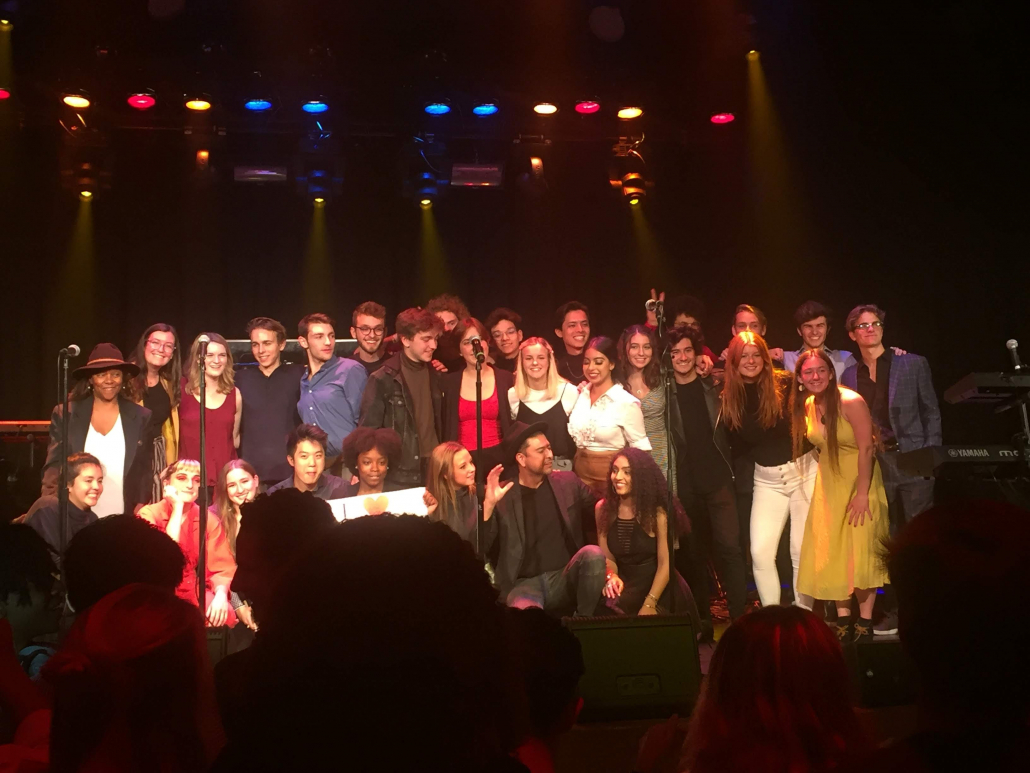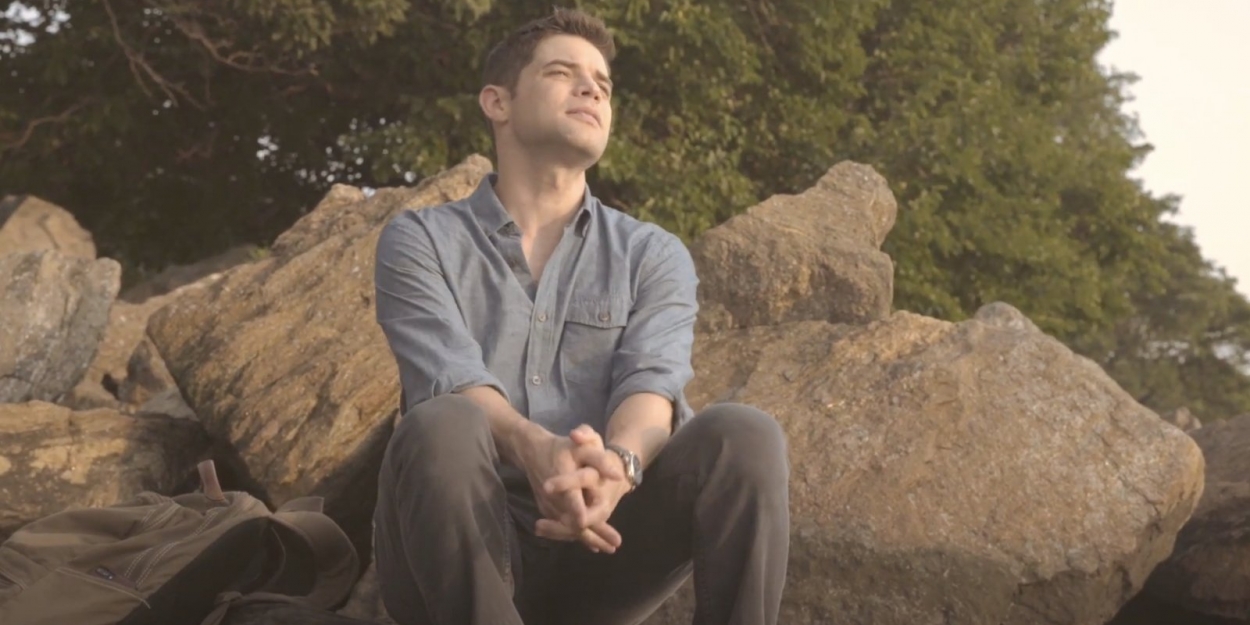
In certain quarters, the sax has picked up a reputation for '80s cheese – but these naysayers don't know what they're missing
Capable of far more than a slightly sleazy solo (though to be honest that’s part of the appeal) the presence of this golden-hued instrument has elevated hundreds of songs into straight-up super hits. In the business for some woodwind? Look no further…
As a kid, David Bowie flicked through some old copies of Melody Maker , and came across the jazz saxophonist Ronnie Ross – who would later play on Lou Reed 's 'Walk on the Wild Side'. "I was like nine or 10 years old, and I phoned him up and said, "Hello, my name is David Jones, and my dad's helped me buy a new saxophone, and I need some lessons," Bowie recounted to Performing Songwriter . He successfully persuaded Ross, and Bowie later ended up playing sax on his own track 'Changes'. For his 1983 album 'Let's Dance', meanwhile, Bowie recruited a horn section, and opening track 'Modern Love' is powered by some of his entire catalogue's finest saxual healing.
In a tradition that possibly dates back to Bucharest-based Europop pioneer Alexandra Stan and her 2011 horn-playing tribute 'Mr Saxobeat', pop has made increasing use of the saxophone over the last decade. And for sheer feel-good factor, it doesn't get much better than the high drama Celtic-flavoured sax that powers Carly Rae Jepsen 's 'Run Away With Me' – a melody so ridiculously memorable that it became a Vine meme in which it was played by everyone from Dolly Parton to Ross Geller .
A colossal slab of wide-eyed rock'n'roll, Bruce Springsteen 's commercial breakthrough 'Born To Run' is an operatic epic to chasing "a runaway American Dream" – each vivid scene more saturated than the last. "I want to know if love is real / Oh, can you show me?" Springsteen sings. Clarence Clemons steps into answer with an enormous sax solo giddy on joy and excitement. Something of a legend in the medium, Clemons also lent his woodwind talents to…
On 'Born This Way', Lady Gaga brought together Eurotrash excess and shoddy attempts at speaking German (see: 'Scheiße') with straight-up rock ambition direct from the playbook of one of her favourite artists, Bruce Springsteen. In fact, when it came to injecting some sax factor into 'The Edge of Glory', Gaga rang up E Street Band member Clarence Clemons and asked him to fly to New York to record that very same day. He injects an effortless sense of fun that felt missing from other mainstream pop music at that time – and Lady Gaga dug back into '80s pop revival long before it was everywhere again.
A cover of Dolly Parton 's country-tinged original, Whitney Houston 's version of 'I Will Always Love You' – recorded for 1992 schmoozy movie The Bodyguard – amps up the ballad factor and makes belting use of Houston's powerhouse vocal. And just when you think things can't possibly get any more dramatic, in comes a yearning-filled sax solo from Kirk Whalum – who over the years has also lent his talents to Luther Vandross, Everything But The Girl , and Al Green .
Produced by David Bowie and Spiders With Mars member Mick Ronson, Lou Reed's twangy anthem for Andy Warhol's Factory superstars fades out with a honeyed sax solo, which could happily keep going into infinity. To create the famous rock'n'roll moment, Bowie booked his childhood saxophone teacher Ronnie Ross and turned up to surprise him at the session.
There's a fidgety, wonky undercurrent to ’80s Aussie rockers’ Men At Work's 'Who Can It Be Now' – and much of this comes down to the band's Greg Ham and his tenacious sax hook, which weaves its way through the entire new wave number. The parping solo itself was recorded in a single take. The inescapable main melody later cropped up on Jason Derulo 's mildly irritating cowbell fest 'Love Hangover'. So, OK, sax solos aren’t all good news.
Not to change the topic here:
Review: Florida Studio Theatre reopens with 'Vintage POP!' cabaret

With singer Carole J. Bufford's new cabaret show "Vintage POP!" Florida Studio Theatre is reopening safely and in style in downtown Sarasota.
Ticket Newsletter: ign up to receive the latest news on things to do, restaurants and more every Friday
Cabaret is a tricky art form. It's tempting to throw a bunch of fun songs together and sing a concert. But Bufford, in her third show at FST, brings something more to her programs with perspective, history and personality. In "Vintage POP!" she ushers the audience through eight decades of music from "(Won't You Come Home) Bill Bailey" by Hughie Canon in 1902 to "Man In the Mirror" by Michael Jackson in 1988.
Bufford has a captivating way of telling the story behind each decade and each song, which gives the show the feel of an entertaining music appreciation class taught by a charismatic professor.
Sharing her favorite quote about the composition of a good song, "A well-written song bends but doesn't break," Bufford demonstrates through subtle stylistic changes the many shades of such numbers. At one point, she beautifully shows how a simple tempo modification can change the entire feel of the songs from the 1950's.
The "Blue Moon" that we all now know and love was finally released later in 1934 after an MGM executive decided the song had commercial possibilities but needed a more romantic lyric. Hart resisted at first, not wanting to degrade himself by becoming a commercial "hack," but finally relented. "Blue Moon" became the biggest hit for Rodgers and Hart.
It is also fascinating to learn that "Bei Mir Bist Du Schoen" started off as a Yiddish song performed in the Catskills by African-American performers Johnnie and George. Sammy Cahn obtained the rights and rewrote the lyrics in English for the Andrew Sisters, who made it into a tremendous hit. It also was popular in Nazi Germany until officials learned of its Jewish origins and banned the song, which only led to increased popularity around the world.
It's the story behind each song and the way Bufford floats with ease from style to style, era to era, that makes the show such a joy. Most singers try to stay away from signature songs that are tied to famous stars. "Somewhere Over the Rainbow," which is synonymous with Judy Garland, is rarely satisfying in concert, but Bufford makes it sound lovely. She never tries to imitate but manages to pull off the trick of making each song her own, with her own unique stamp.
Bufford is joined by the personable and talented Isaac Mingus on bass and Jim Prosser on piano. Costumes are spot on and lighting design by Nick Jones adds the finishing touch to the show.
Music: A round-up of the latest books
One-hit wonders come and go, remembered and forgotten. One such, Excerpt from a Teenage Opera, co-written by singer Keith West with German pop music producer Mark Wirtz, was huge across Europe in 1967.
Pop Music students maintain collaborative creative efforts | Daily Trojan

This week marks the first year since the coronavirus pandemic turned USC's student body on its head. For popular music majors — a group of students whose curriculum relies heavily on in-person experiences — at the Thornton School of Music, this change forced them to become innovative in the ways they create community.
A year later, from new performance methods and programs to foster connections, the limitations of a virtual environment have not stopped students from doing what they do best: making music.
Usually, first year showcases are performed at Tommy's Place, but because of the coronavirus pandemic and performance classes being placed on hold for Fall 2020, the first virtual showcase was hosted Mar. 5 and garnered around 140 attendees. The event, carried out by the freshmen pop class, was open to the entire student body, past alumni, professors, faculty, staff and parents.
The event featured four bands of students who learned a repertoire list of two to three songs — note for note — with various instruments over the beginning of the semester before recording their respective performances on Acapella, a sound engineering and songwriting app.
Sophie Feldman, a junior majoring in popular music and psychology who attended the showcase, said she applauded the students' performance and their adaptation to the virtual stage.
Freshman Maddi Lasker, who participated in the showcase, said she was quite impressed with the level of warmth, friendliness and initiative the upperclassmen took in welcoming the newcomers.
"Online, it’s very easy for things to be awkward or you can be hesitant to other people, but [the upperclassmen] were so outgoing, so friendly and overall just so excited to get to know us," Lasker said.
Thornton's Popular Music Performance program has always been a tight knit community, according to sophomore Maria McMillan, owing to its small size of around 25-30 people per cohort.
As a small community, popular music students rely on one another not just for academics and performances but for social support and advice, junior Dominic Anzalone said. The major organizes each class into bands with different mixes of students and instruments — a difficult thing to do without in-person classes and with in-person performances postponed.
Not to change the topic here:
Video Roundup: Jeremy Jordan, Ali Stroker, Jelani Alladin, and More in R&H GOES POP! Music Videos

TikTok and the Pop Music Rough Draft - The New York Times

Most of the biggest pop music success stories of the last year — loosely the quarantine era in the United States — owe at least some of their success to TikTok, the social video app that's become the most seamless and effective promotional mechanism in the music business.
It is also necessitating changes in how songs get made. In some cases, performers are trying out ideas on the platform to see if they catch on. In other cases, major labels are signing new artists with suddenly viral hits and adding superstars to remixes in hopes of boosting their profile.
On this week's episode, a conversation about how TikTok has reshaped pop during the first year of the coronavirus pandemic, how record labels are grappling with unpredictable virality and how songwriters are using it as a clearinghouse for rough drafts.
Saxophonist Elijah Jamal Balbed is playing pop-up outdoor shows around D.C. - The Washington Post

The crowd at Malcolm X Park (a.k.a. Meridian Hill Park) in Columbia Heights is a sparse one on this gorgeous Tuesday afternoon. Elijah Jamal Balbed doesn't let that faze him.
"It sure beats playing to the walls in my house, which is what I'd be doing otherwise," says the 31-year-old tenor saxophonist, as he helps drummer Julian Berkowitz haul his kit into the park's upper tier. Beside them, Steve Arnold unpacks his bass.
A few minutes later, the three musicians are letting fly on the standard "East of the Sun (and West of the Moon)," and the people around them are responding. A roving photographer spends some time snapping pictures from various angles. One woman wanders over with her Shih Tzu, who flops down into the grass and gazes at the band. "Did you like that?" the woman coos to the dog when the song ends.
His only advertisement is on social media , where Balbed uses the hashtag #JazzMobDC. It refers to the large group of musicians he's enlisted to participate in the project, but also evokes its flash-mob-like nature.
Like most musicians, Balbed spent months without performing. It was a reality check. Music wasn't just a means to pay the bills, he discovered: It was essential to his mental health.
He began performing every Sunday night outside Chi-Cha Lounge, an Andean restaurant on U Street NW (where Balbed had initiated a weekly gig just before pandemic-related shutdowns commenced). Not only did the people there react similarly to his porch concert audiences, but the musicians he brought with him did, too. The joy he saw motivated him to keep the music coming.
A photographer acquaintance of Balbed's caught a performance in Columbia Heights and suggested that he try something like it at Capitol Hill's Lincoln Park. She helped spread the word, generating a significant crowd for the band's debut performance there.
By March, with the anniversary of the pandemic approaching, Balbed had established a loose routine of pop-up appearances. Some happened weekly and some were more sporadic. They were happening so often, in fact, that his core sidemen, Arnold and Berkowitz, couldn't make every performance. He gathered a larger circle of musicians — including trumpeter Joe Brotherton , vibraphonist Chris Barrick and guitarists Dave Manley and Pete Muldoon — who were into the idea of playing pop-up concerts of their own.
Hence the idea for #JazzMobDC. Balbed uses the hashtag to advertise his own performances, as well as appearances as a sideman and even performances where he's not on the bill at all. The itinerary has expanded beyond the boundaries of the District: The Clarendon Metro station has become part of Balbed's rotation, and Manley has begun playing at the Takoma Park gazebo just across the District line.
K-pop group Brave Girls that was almost forgotten tops music charts after viral YouTube video -

A compilation of footage from their performances of their song "Rollin'" at South Korean military camps was uploaded to YouTube in late February. The video featured witty captions and comments like, "If we play this song at the front lines, victory is ours," alongside scenes of South Korean soldiers frantically cheering and dancing to the upbeat track. The video has since garnered more than 13.5 million views and over 38,000 comments, causing Brave Girls' popularity to skyrocket.
"Rollin'," which was released in March 2017, is now sweeping South Korea's music charts. On Wednesday, the song also topped Billboard's latest K-pop 100 chart, ousting soloist IU's single "Celebrity," which had held the No.1 spot for seven straight weeks.
Brave Entertainment, the South Korean entertainment company responsible for the K-pop quartet's publicity, waited to see if the sudden success was fleeting. But with their songs back on the charts, Brave Girls began receiving a flood of invitations to perform on weekly music show stages. Then on March, 14, the group took home their first-ever win on a South Korean music show with their sleeper hit, "Rollin'."
"The entire staff at our company were close to tears," a Brave Entertainment spokesperson told ABC News. "The members could not believe what was happening and said it was like a surprise gift."
Seoul-based pop culture critic Kim Hern-sik said the Brave Girls' success story was made possible due to public support and encouragement of the underdogs.
"Their belated success was not just accidental," Kim told ABC News. "Brave Girls' passionate performance at distant military camps finally paid off."
South Korean service members make up a solid portion of the Brave Girls fandom, in a country where male citizens between the ages of 18 and 28 are required to serve in the military for 18 to 21 months. The girl group has performed more than 100 times at South Korean military camps, despite the remote locations and low profits.
Many soldiers also watch the Brave Girls on military-run television channels, with restrictions in their use of cell phones.
"Watching them singing and dancing with the most joyful smile on television made us smile as well, despite all the burden left behind," Lee Hae-chang, who served in the South Korean military for the past two years, told ABC News. "Seeing their recent success with their song 'Rollin',' I feel proud as if I have been part of their endeavor throughout the years."

No comments:
Post a Comment